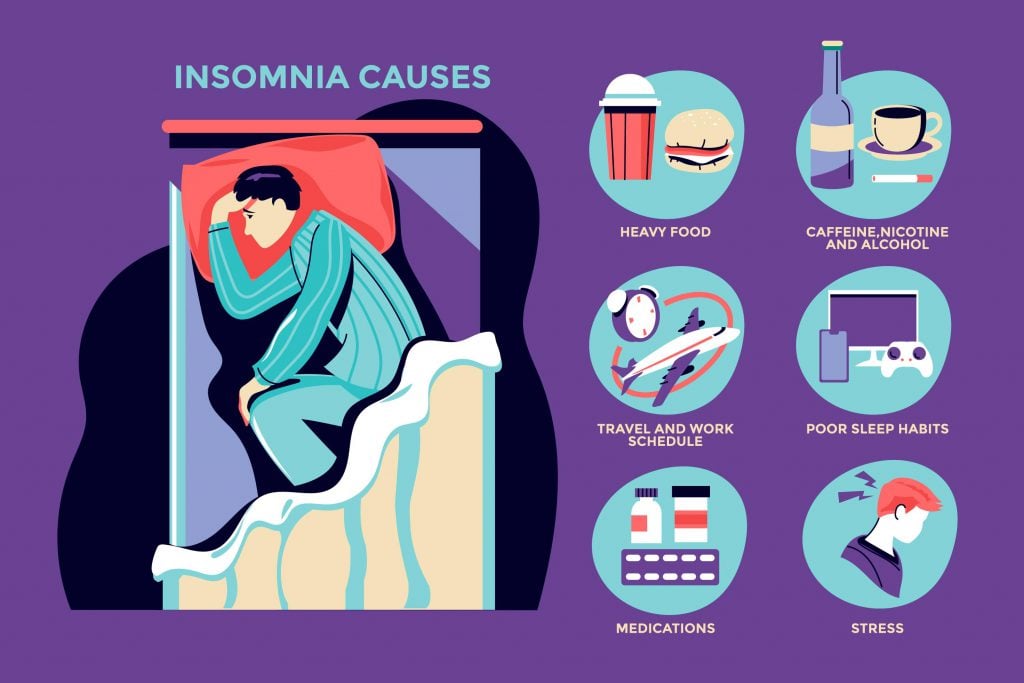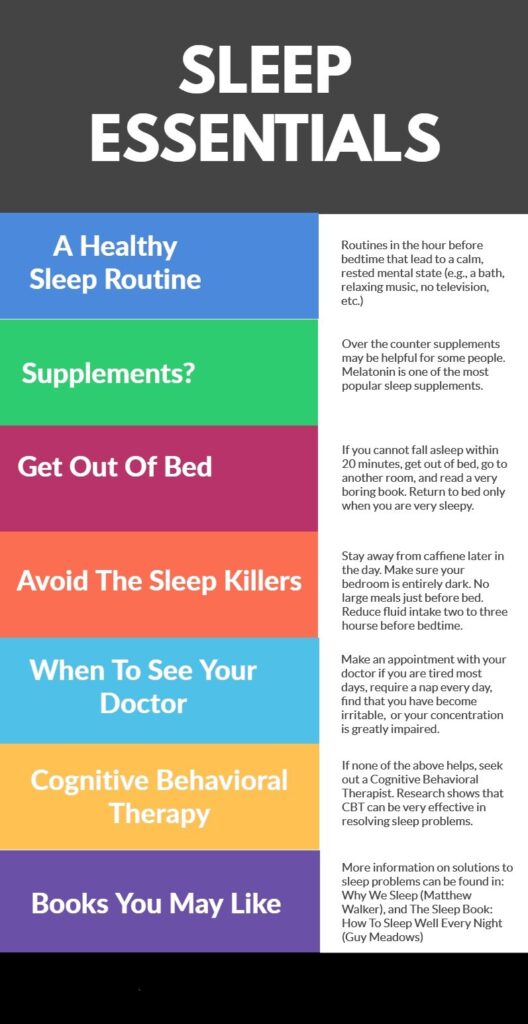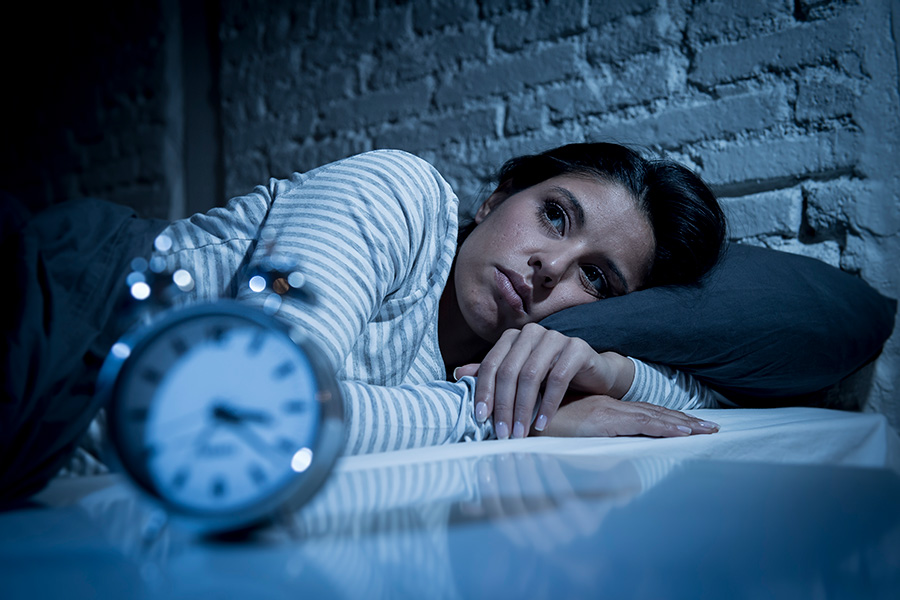One prevalent sleep condition is insomnia. You can experience difficulties going asleep, remaining asleep, or receiving high-quality sleep if you have insomnia. Even if you have the time and the ideal setting for restful sleep, this still occurs. Your regular activities may be hindered by insomnia, which can also cause you to feel sleepy during the day.
Stress or alterations in your routine or surroundings can be the cause of short-term sleeplessness. It may continue for several days or weeks. Three or more evenings a week for longer than three months constitutes chronic (long-term) insomnia if it cannot be adequately explained by another medical condition.
Your doctor may inquire about your sleeping patterns and request that you keep a sleep journal in order to diagnose insomnia. In addition, your healthcare professional might suggest healthy lifestyle practices including adhering to a regular sleep schedule, getting cognitive behavioral therapy for insomnia, and taking medication to help you sleep better.
Verify whether you suffer from sleeplessness:
You have sleeplessness if you frequently:
- Have trouble falling asleep
- Wake up multiple times in the middle of the night
- lie awake
- wake up early and are unable to fall back asleep
- still feel tired after waking up
- find it difficult to nap during the day
- feel irritable and tired during the day
- find it difficult to concentrate during the day

Short-term insomnia is the term used to describe sleeplessness that lasts for less than three months. Long-term insomnia is defined as insomnia that persists for three months or more.
Everyone needs different amount of sleep; On average:
- Adult need 7-9 hours
- Children need 9-13 hours
- Toddlers and babies need 12-17 hours
Changing your sleeping habits typically helps with insomnia.

Do’s
- Always go to bed and wake up at the same time
- Before going to bed, unwind for at least an hour. You may read a book or take a bath.
- Make sure your bedroom is quiet and dark; if necessary, use earplugs, eye masks, curtains, or blinds.
- Engage in frequent daytime exercise
- Verify the comfort of your mattress, pillows, and blankets.
Don’ts
- Avoid using tobacco products, drinking alcohol, or consuming tea or coffee at least six hours before bed.
- Avoid having a large dinner late at night.
- Don’t work out for at least four hours before bed.
- Avoid using electronics like smartphones or televisions immediately before bed as the strong light causes you to stay awake.
- Avoid taking naps during the day.
- Avoid driving when you’re tired.
- After a restless night, adhere to your regular sleeping hours rather than sleeping in.


